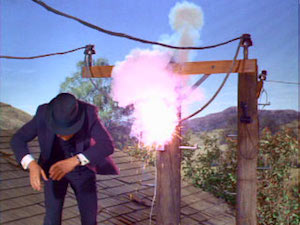Trump telecom policy may be hiding in plain sight on Capitol Hill
![By Noclip (Own work) [Public domain], via Wikimedia Commons](https://www.tellusventure.com/images/2016/11/capitol_hill.jpg)
The only major telecommunications bill with more than a slim chance of making it out of the U.S. congress and onto president Obama’s desk before everything re-sets in January is the Mobile Now act, aka senate bill 2555. But it’s not the only one worth watching.
Authored by the chairman of the senate’s commerce, science and transportation committee, John Thune (R – South Dakota), the bill would free up more spectrum for mobile broadband purposes, for both licensed and unlicensed users, and streamline procedures for installing broadband infrastructure – towers and fiber – on federal property.… More




![Keith Evans [CC BY-SA 2.0 (https://creativecommons.org/licenses/by-sa/2.0)], via Wikimedia Commons](https://www.tellusventure.com/images/2016/11/lame_duck.jpg)
![By Army Signal Corps [Public domain], via Wikimedia Commons](https://www.tellusventure.com/images/2016/11/missouri_surrender.jpg)

![By Nandaro (Own work) [CC BY-SA 3.0 (https://creativecommons.org/licenses/by-sa/3.0)], via Wikimedia Commons](https://www.tellusventure.com/images/2016/11/mammoth_lakes.jpg)

![By Frank Schulenburg (Own work) [CC BY-SA 4.0 (https://creativecommons.org/licenses/by-sa/4.0)], via Wikimedia Commons](https://www.tellusventure.com/images/2016/11/calaveras_jumping_frog.jpg)